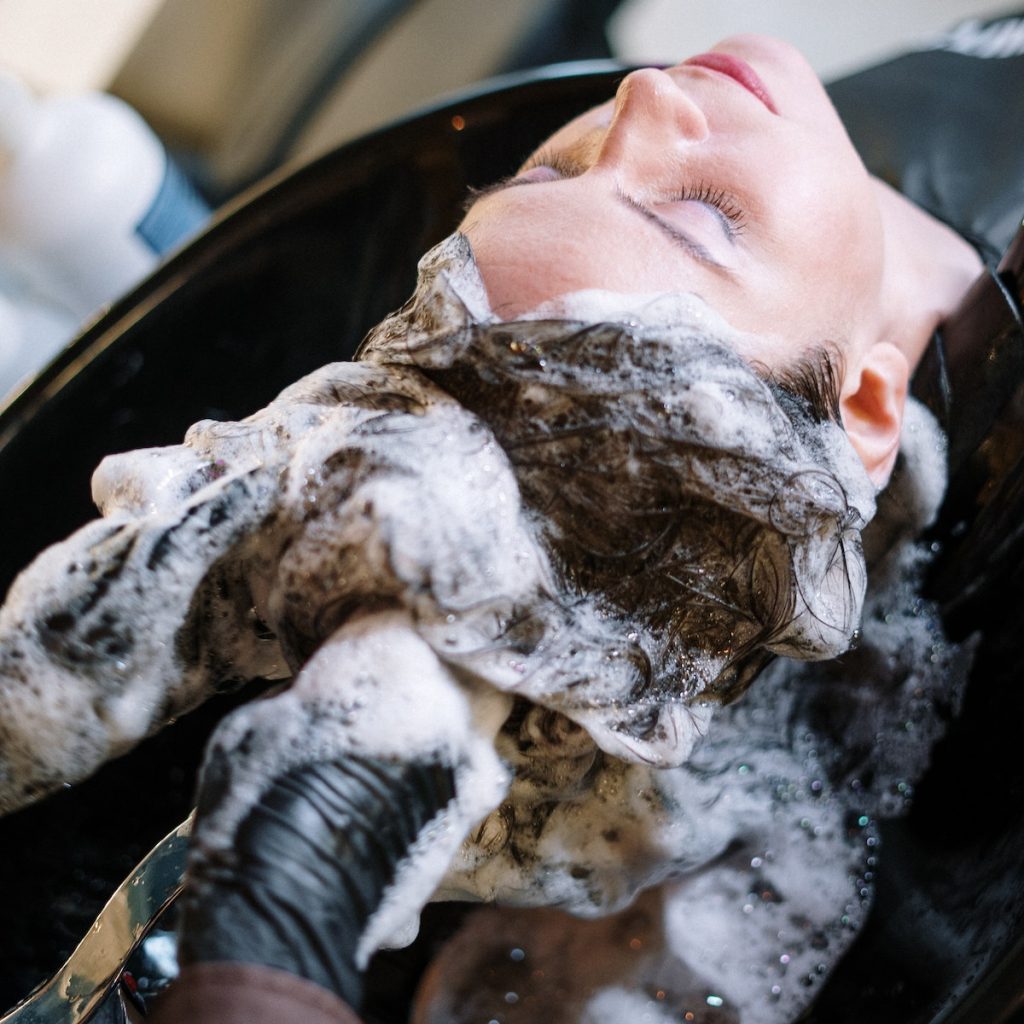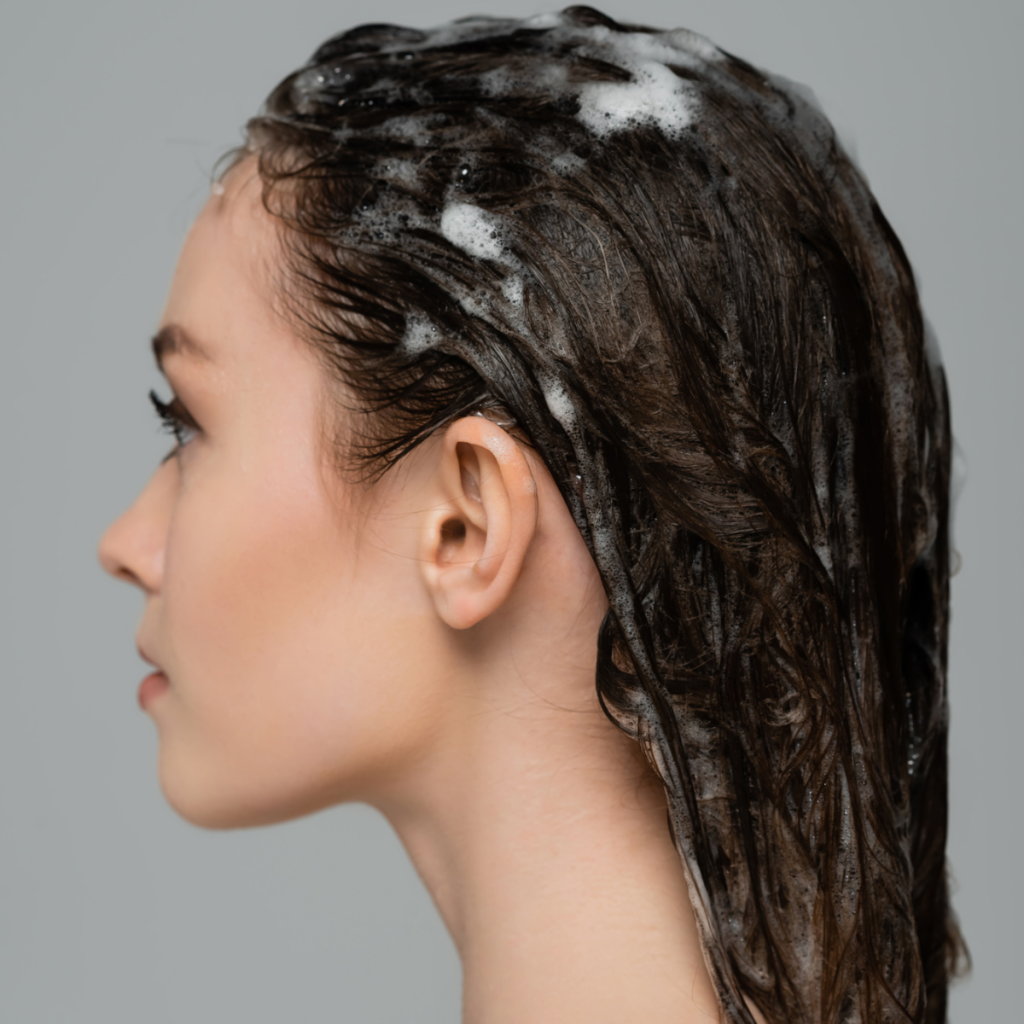Discover the importance of sulfates in shampoos and their role in cleansing and foaming.
What Role Do Sulfates Play in Shampoos?
If you’ve ever picked up a bottle of shampoo and glanced at the ingredient list, you may have come across a word that seems to stand out – sulfates. But what exactly are sulfates, and what role do they play in your beloved hair care products? Fear not, curious reader! In this article, we’re going to dive deep into the bubbly world of sulfates and explore their functions, their pros and cons, and even introduce you to the alternative – sulfate-free shampoos. Let’s get started!

Understanding Sulfates: A Brief Overview
Before we jump into the nitty-gritty details, it’s essential to grasp the basics of sulfates. So, what are these mystical substances anyway? Sulfates are a type of surfactant commonly used in personal care products, such as shampoos, shower gels, and even toothpaste. They have a unique ability to lower the surface tension of water, which means they can create a rich lather and help remove dirt and oils from your hair.
But let’s dive a little deeper into the world of sulfates and explore their fascinating properties and effects on our hair and skin.
What are Sulfates?
At their core, sulfates are salts derived from sulfuric acid. In shampoos, two types of sulfates are most commonly used – Sodium Lauryl Sulfate (SLS) and Sodium Laureth Sulfate (SLES). These sulfates are responsible for that satisfying foam party happening on top of your head in the shower.
Sodium Lauryl Sulfate (SLS) is a potent surfactant that effectively removes dirt and oil from your hair. It’s known for its ability to create a thick lather, leaving you with that squeaky-clean feeling. On the other hand, Sodium Laureth Sulfate (SLES) is a milder sulfate that provides a gentler cleansing experience while still maintaining a satisfactory foam.
While sulfates have been widely used in personal care products for decades, they have also faced some criticism. Some people claim that sulfates can strip the hair and scalp of natural oils, leading to dryness and irritation. However, scientific studies have shown that when used in appropriate concentrations and followed by proper conditioning, sulfates are generally safe for most individuals.
It’s important to note that if you have particularly sensitive skin or a specific allergy to sulfates, it’s best to opt for sulfate-free alternatives available in the market.
The Chemical Structure of Sulfates
Now, let’s put on our lab coats for a moment and examine the chemistry behind sulfates. Picture a sulfate molecule as a tiny, curly-haired character with a head and a tail. The head of the molecule is hydrophilic, meaning it loves water, while the tail is hydrophobic, meaning it repels water. This unique structure allows sulfates to bond with water and oil simultaneously, making them excellent at rinsing away dirt and grease from your hair.
When you apply a sulfate-containing shampoo to your hair, the hydrophilic heads of the sulfate molecules attract water molecules, while the hydrophobic tails attach themselves to oil and dirt particles. As you rinse your hair, the sulfates form micelles, tiny clusters that encapsulate the dirt and oil, allowing them to be easily washed away with water.
This dual-action cleansing mechanism of sulfates makes them highly effective in removing impurities from your hair, leaving it clean and refreshed. However, it’s worth mentioning that the same mechanism can also strip away some of the natural oils that keep your hair moisturized. That’s why it’s crucial to follow up with a nourishing conditioner to restore hydration and maintain the health of your hair.
So, the next time you reach for your favorite shampoo or shower gel, you’ll have a better understanding of the sulfates that create that luxurious lather and cleanse your hair effectively. Remember, knowledge is power, even when it comes to the chemistry of our everyday products!
The Function of Sulfates in Shampoos
So, why do sulfates deserve a VIP spot in your shampoo’s ingredient list? Let’s break down their crucial roles, shall we?
Before we dive into the details, it’s important to understand what sulfates actually are. Sulfates are a type of surfactant, which stands for surface-active agent. These compounds have a unique structure that allows them to interact with both water and oil, making them ideal for cleaning products like shampoos.
Sulfates as Detergents
One of the primary responsibilities of sulfates is to act as detergents. They help break down the oils and dirt that accumulate on your scalp throughout the day, leaving your hair feeling fresh and clean. Think of sulfates as little superheroes, fighting against the villains of grime and build-up.
When you massage shampoo into your hair, the sulfates work their magic by attracting both water and oil molecules. The hydrophilic (water-loving) part of the sulfate molecule attaches to water, while the lipophilic (oil-loving) part attaches to the oils on your scalp. This dual-action allows the sulfates to lift away dirt and oils, leaving your hair squeaky clean.
However, it’s worth noting that sulfates can be quite effective at stripping away natural oils from your hair, which can lead to dryness and frizz. That’s why it’s important to find a balance and choose a shampoo that contains sulfates in the right concentration for your hair type.
Sulfates for Foaming Effect
Have you ever poured shampoo into your hand and marveled at the luxurious foam that quickly forms? Well, you can thank sulfates for that frothy magic! These sneaky creatures are excellent foaming agents, creating a delightful sensory experience during your shower time.
The ability of sulfates to create foam is due to their unique molecular structure. When you mix shampoo with water and massage it into your hair, the sulfates lower the surface tension of the liquid, allowing air to be trapped and forming bubbles. This foaming action not only spreads the shampoo evenly throughout your hair but also gives you the satisfying feeling of a deep cleanse.
However, it’s important to note that the foaming effect of sulfates doesn’t necessarily indicate the effectiveness of the shampoo. Some sulfate-free shampoos can still provide excellent cleansing without the excessive foam. So, if you’re looking to reduce the foam in your shampoo, opting for a sulfate-free alternative might be worth considering.
In conclusion, sulfates play a vital role in shampoos as detergents and foaming agents. They help remove dirt and oils from your hair, leaving it clean and refreshed. Additionally, they create a luxurious foam that enhances your shower experience. However, it’s essential to find the right balance and choose a shampoo that suits your hair type and preferences.
The Pros and Cons of Sulfates in Shampoos
Now that we’ve explored the marvelous world of sulfates let’s take a moment to weigh their pros and cons, shall we?
The Benefits of Sulfates in Shampoo
Sulfates offer some compelling advantages. Besides providing a thorough cleanse, they often help to remove styling product build-up from your hair, leaving it feeling light and refreshed. This is especially beneficial for individuals who use a lot of hair products, such as hairspray, gel, or mousse, as sulfates can effectively eliminate any residue that may accumulate over time.
In addition to their cleansing properties, sulfates are generally cost-effective, making them an affordable choice for many. This affordability factor is particularly appealing for those on a tight budget or looking to save some money on their hair care routine.
The Potential Downsides of Sulfates
While sulfates can work wonders for some, they may not be everyone’s cup of tea. For starters, sulfates have the potential to strip your hair of its natural oils, leading to dryness and potential damage. This can be especially problematic for individuals with already dry or brittle hair, as sulfates can exacerbate these conditions. Therefore, it is crucial to consider your hair type and condition before opting for a sulfate-containing shampoo.
Moreover, if you have sensitive skin or a sensitive scalp, sulfates may cause irritation or discomfort. Sulfates can be quite harsh on the skin, and individuals with conditions such as eczema or psoriasis may find that their symptoms worsen with the use of sulfates. It is essential to listen to your hair and heed any warning signs of discontent, such as scalp itching or redness, and consider alternative shampoo options if necessary.
Furthermore, sulfates have been a topic of debate in recent years due to their potential environmental impact. When sulfates are washed down the drain, they can enter waterways and contribute to water pollution. This can have negative effects on aquatic ecosystems and wildlife. If you are environmentally conscious, you may want to explore sulfate-free shampoo alternatives to reduce your ecological footprint.
It’s important to note that the effects of sulfates can vary from person to person. While some individuals may experience no issues with sulfates and enjoy the benefits they provide, others may find that sulfates are not suitable for their hair or skin. Ultimately, the decision to use sulfates in shampoos should be based on personal preference, hair type, and individual needs.
Sulfate-Free Shampoos: An Alternative
Not quite sold on sulfates? Fear not, dear reader, for the beauty industry has heard your concerns and answered with a worthy alternative – sulfate-free shampoos!
Why Choose Sulfate-Free Shampoos?
Sulfate-free shampoos offer a gentle and more natural cleansing experience. Without sulfates as the main cleansing agent, these shampoos rely on milder surfactants or naturally derived alternatives. This can be particularly beneficial for individuals with sensitive skin or those seeking a gentler approach to hair cleansing.
Comparing Sulfate-Free and Regular Shampoos
It’s time for a showdown between the two shampoos! Sulfate-free shampoos may not produce as much lather as their sulfate-packed counterparts, but that doesn’t mean they lack cleansing power. These gentle alternatives aim to preserve the natural oils in your hair while still effectively removing dirt and impurities. They may also be less likely to cause scalp irritation or lead to color fading for those with dyed locks.
Expert Opinions on Sulfates in Shampoos
Now that we’ve taken a good look at sulfates and their alternative, let’s turn to the experts to gather some insights. What do dermatologists and hair stylists have to say about sulfates in shampoos?

Dermatologists’ Views on Sulfates
Dermatologists have differing opinions on the use of sulfates in shampoos. Some suggest that individuals with sensitive skin or specific hair conditions, such as eczema or psoriasis, may benefit from sulfate-free options. It’s always advisable to consult with a dermatologist who can provide personalized advice based on your unique needs.
Hair Stylists’ Perspective on Sulfates
When it comes to hairstyling, opinions are as diverse as hairdos themselves. Some stylists believe that sulfates can be beneficial for individuals with oily or heavily styled hair, as they provide a deep cleanse. On the other hand, some stylists promote sulfate-free shampoos for those with color-treated or fragile hair, emphasizing the need for gentler care.
So there you have it, dear reader – a whirlwind tour through the fascinating realm of sulfates in shampoos. Whether you choose to embrace the bubbly benefits of sulfates or opt for a more gentle sulfate-free experience, the decision ultimately lies in your hands, or rather, in your hair. Remember, finding the perfect shampoo is like finding the perfect dance partner – it’s all about finding a harmonious balance that leaves you with happy, healthy, and fabulous-looking locks. Happy shampooing!





